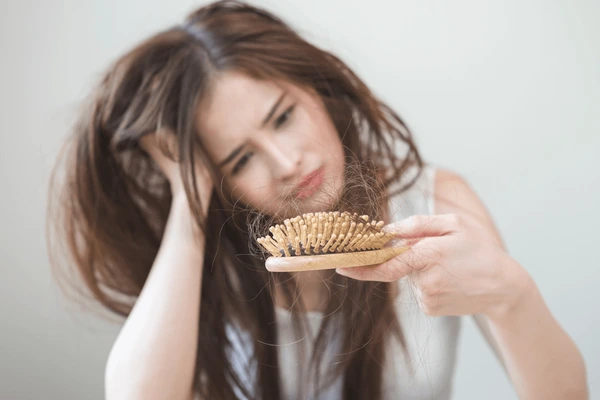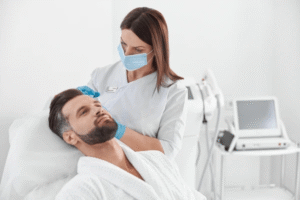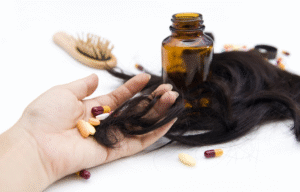
Hair Fall After Illness or Antibiotics? Here’s What Your Body is Trying to Tell You

Hair Fall After Illness or Antibiotics? Here’s What Your Body is Trying to Tell You
Why Post-Illness Hair Fall Happens
Many people walk into Midas Wellness Hub distressed about sudden, aggressive hair fall weeks after recovering from:
- Viral fever
- Typhoid
- Dengue
- COVID-19
- Long antibiotic use
- Any high-grade infection
What they don’t realise is that this is not random—it’s telogen effluvium, a very real and very common condition where hair enters the shedding phase prematurely due to shock or stress on the body.
When Does It Start? How Long Does It Last?
Hair fall doesn’t usually start during illness, but 3–6 weeks after recovery. The body prioritises survival—immune response, organ repair—and shuts off “non-essential” functions like hair growth.
Unfortunately, most people panic when the hair starts falling—not connecting it to the illness they had weeks earlier.
If not addressed early, it can:
- Last for 3–6 months or more
- Lead to visible thinning
- Affect hair volume and scalp density
How Antibiotics Worsen Hair Health
Many antibiotics strip the gut of good bacteria, affecting nutrient absorption (especially B vitamins, zinc, and iron).
This results in:
- Poor protein breakdown
- Fatigue
- Weak nails and skin
- Worsening hair fall
The connection between gut health and hair health is far more serious than most people realise.
What We See at Midas Wellness Hub
At Midas, we routinely see clients post-COVID or post-typhoid who:
- Haven’t eaten well for weeks
- Have low protein, B12, D3, or iron
- Complain of scalp sensitivity or oily dandruff
- Don’t realise their gut microbiome is disturbed
What We Do at Midas Wellness Hub
1. Blood Test & Root Cause Screening
We check for:
- Vitamin B12, D3, iron profile
- Ferritin (hair growth stores)
- Inflammatory markers (CRP, ESR if needed)
- CBC (to check for post-infection anemia)
- Gut health indicators
2. Advanced Hair Treatments
We help restore hair health using:
- GFC (Growth Factor Concentrate): For those with weak roots post-illness; helps regain lost density.
- PRP (Platelet-Rich Plasma): Improves blood flow to the scalp, restarts dormant follicles.
- BioScalp Detox: Clears out infection-related scalp buildup, inflammation, or dandruff.
- Mesotherapy: Injects vitamins and nutrients directly into the scalp for faster recovery.

We do not recommend generic treatments. Each protocol is based on medical and nutritional evaluation.
3. Custom Diet + Supplementation Plan
Our in-house dietitians work on:
- Boosting protein intake (paneer, curd, dal+rice, whey if needed)
- Iron and B12 through food + supplements
- Probiotics and gut-repair foods (curd, banana, cooked rice, cumin, ajwain)
- Vitamin D3 + zinc for immunity and follicle strength
Why Just Oil and Hair Masks Won’t Help
This type of hair loss is systemic, not cosmetic.
So if you’re applying oil, serums, or home remedies without:
Addressing internal deficiencies
- Rebuilding gut health
- Treating inflammation
you’re just wasting time. Topical care only works when internal health is in place.
FAQs
If you had an infection or antibiotics 1–2 months ago, and now hair fall has started—it’s likely telogen effluvium. A quick blood test confirms the root cause.
With the right nutrition and treatment, clients at Midas see improvement in 4–6 weeks, with regrowth visible by 3 months.
Supplements help, but if the follicle is damaged, you’ll need GFC or PRP to reboot growth. Both work best when combined with proper diet.
Yes. This is a sign of inflammation or poor circulation. Our BioScalp therapy soothes and calms the scalp.
Eating well doesn’t guarantee absorption. After illness or antibiotics, your gut health may be compromised—leading to poor absorption. That’s why we include gut-healing foods and probiotics in your plan..

